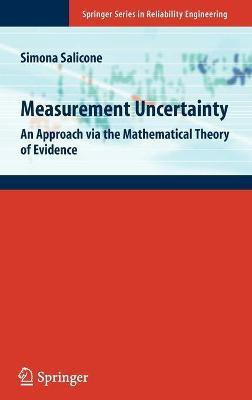Measurement Uncertainty(English, Hardcover, Salicone Simona)
Quick Overview
Product Price Comparison
It is widely recognized, by the scienti?c and technical community that m- surements are the bridge between the empiric world and that of the abstract concepts and knowledge. In fact, measurements provide us the quantitative knowledge about things and phenomena. It is also widely recognized that the measurement result is capable of p- viding only incomplete information about the actual value of the measurand, that is, the quantity being measured. Therefore, a measurement result - comes useful, in any practicalsituation, only if a way is de?ned for estimating how incomplete is this information. The more recentdevelopment of measurement science has identi?ed in the uncertainty concept the most suitable way to quantify how incomplete is the information provided by a measurement result. However, the problem of how torepresentameasurementresulttogetherwithitsuncertaintyandpropagate measurementuncertaintyisstillanopentopicinthe?eldofmetrology,despite many contributions that have been published in the literature over the years. Many problems are in fact still unsolved, starting from the identi?cation of the best mathematical approach for representing incomplete knowledge. Currently, measurement uncertainty is treated in a purely probabilistic way, because the Theory of Probability has been considered the only available mathematical theory capable of handling incomplete information. However, this approach has the main drawback of requiring full compensation of any systematic e?ect that a?ects the measurement process. However, especially in many practical application, the identi?cation and compensation of all s- tematic e?ects is not always possible or cost e?ective.


